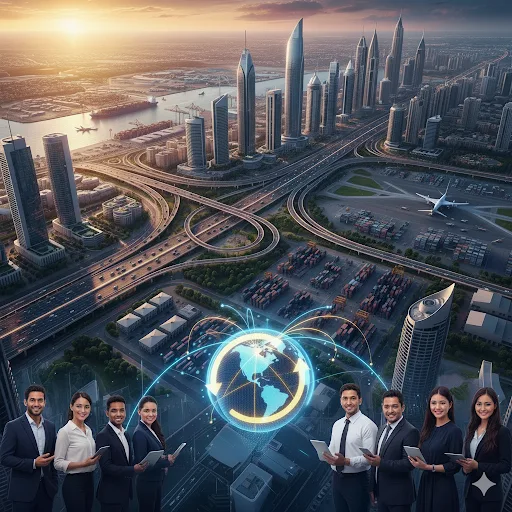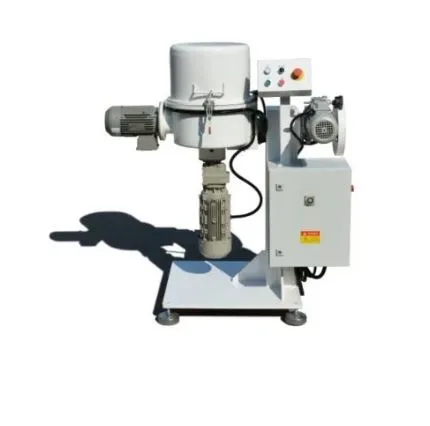The Role of Free Zones in Making the UAE a Global Trade Hub
The UAE has positioned itself as one of the most important destinations for global trade and investment. Entrepreneurs from around the world are drawn to its modern infrastructure, investor-friendly policies, and unique free zone system. These zones have transformed the Emirates into a magnet for global businesses. At the heart of this opportunity is the trade license Dubai, a crucial document that gives entrepreneurs legal recognition and access to markets while strengthening their credibility.
Why Free Zones Matter in the Global Economy
Free zones are economic ecosystems designed to encourage investment, reduce barriers, and provide flexibility for foreign companies. In the UAE, these zones are strategically located near seaports, airports, and major highways, ensuring smooth logistics and efficient global connections.
Businesses established in free zones enjoy tax exemptions, 100 percent foreign ownership, simplified customs procedures, and the freedom to repatriate profits. These incentives create an environment where companies can focus on expansion rather than red tape.
How Free Zones Support the UAE’s Global Trade Ambitions
The UAE’s identity as a global hub is strengthened by its wide range of free zones to support industries such as technology, logistics, finance, media, or healthcare. This industry-focused approach fosters collaboration and innovation, allowing businesses to grow within supportive communities.
By creating a regulatory framework that minimizes complexity, the government ensures that free zones act as bridges between local opportunities and international markets. This combination of structure and flexibility makes the Emirates an appealing destination for both startups and multinational corporations.
Building Global Connectivity
Free zones are connecting businesses to worldwide trade routes and have developed ports and airports that rank among the busiest in the world. Entrepreneurs based in its free zones are positioned at the crossroads of East and West, allowing goods, services, and ideas to flow effortlessly across continents.
Diversity of Free Zones in the UAE
Each emirate offers its own unique mix of free zones, providing investors with a wide range of choices. Dubai alone has more than 30 zones, each catering to a specific sector. Abu Dhabi, Sharjah, and Ras Al Khaimah have also created environments that attract global businesses by tailoring incentives to diverse industries.
A creative agency may flourish in Dubai Media City, while a logistics provider might benefit from the proximity of Jebel Ali Free Zone. This flexibility underscores the UAE’s ability to cater to the diverse needs of various businesses.
Modern Platform for Growth
The IFZA free zone in Dubai has become a standout for entrepreneurs. Its efficiency and affordability, provide smooth processes for company registration, licensing, and visas. It offers a business environment that suits both newcomers and established firms, combining cost effectiveness with professional support.
Entrepreneurs benefit not only from a straightforward setup but also from the ecosystem of partners and consultants. This helps businesses access banking, compliance support, and expansion opportunities without unnecessary delays.
Real Success Stories from the Emirates
Many success stories have emerged from businesses established in UAE free zones. Startups have scaled quickly by leveraging tax benefits, while international firms have used the UAE as a launchpad to enter markets across the Middle East, Africa, and Asia.
The ability to collaborate within sector-specific zones has also led to innovation. Companies report that the simplified licensing process, international reach, and professional networks available in free zones have accelerated their growth and reduced operational challenges.
Conclusion: Free Zones Driving the Future of UAE Business
The rise of the UAE as a global trade hub is closely tied to the success of its free zones. By providing incentives, modern infrastructure, and simplified regulations, they create an environment where businesses can thrive on an international scale.
For entrepreneurs, securing the right license is the first step. From obtaining a trade license to setting up in a specialized zone, the system is designed to support ambition and open global doors. With these advantages, free zones remain at the heart of the UAE’s economic growth strategy.
As the world continues to evolve, the UAE’s free zones will play an even greater role in attracting investors, supporting startups, and enabling global expansion. The Emirates has built more than just business spaces, it has built a foundation for opportunity, resilience, and long term success.





